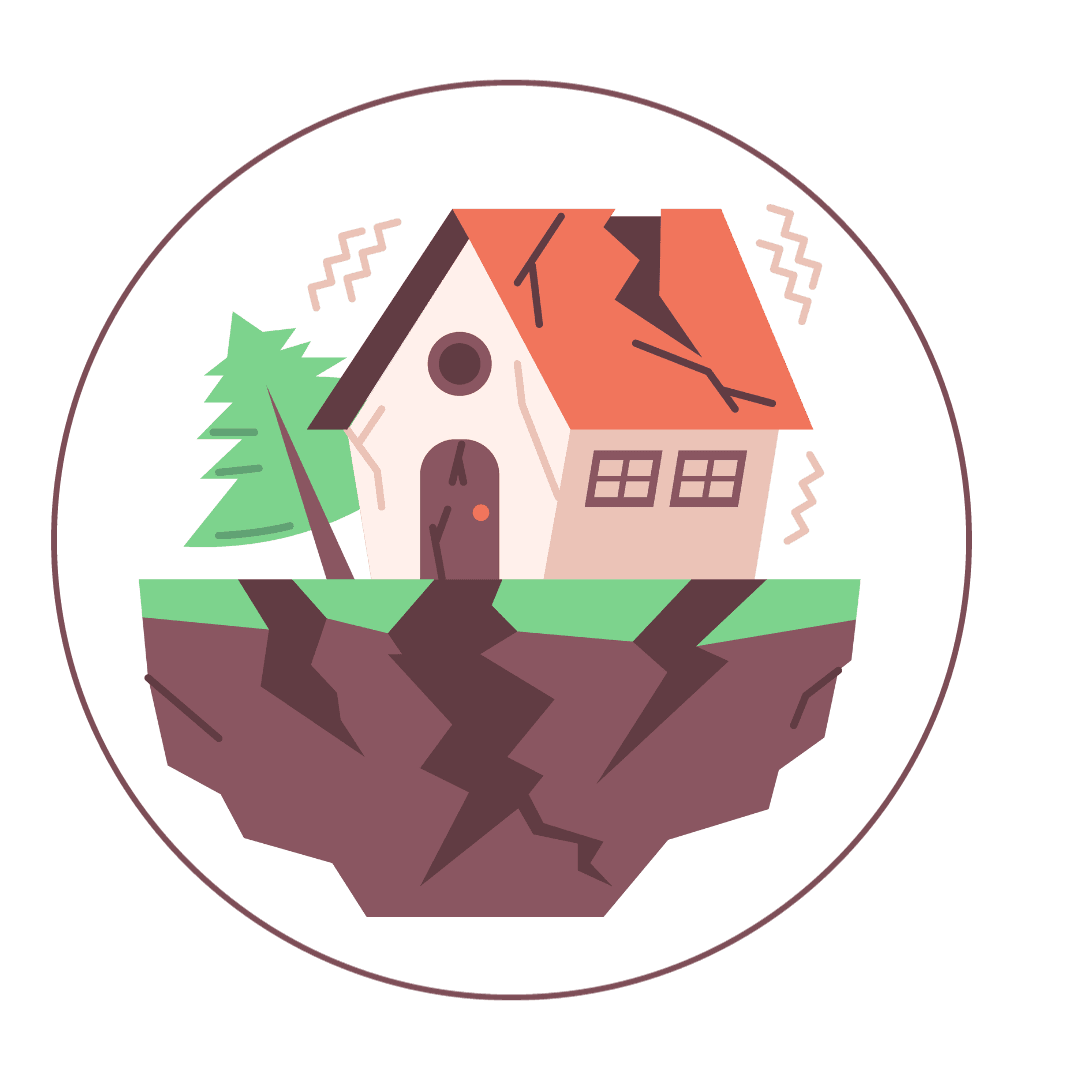Earthquakes
Before the Event: Utility Shutoff
A major earthquake will break gas pipes, electric lines, and water lines. All of these can cause major problems. Locate your gas, water, and electric utilities. Make sure your gas, electric, and water valves are not rusted or stuck shut. Teach all family members how to shut off all utilities and when to do so. Know where the shut-off valves are on your neighbors’ homes as well.
More information about how to turn off your gas, electricity, and water, refer to pages 9-10 of the Get Ready Manual.
During the Earthquake
If you are indoors:
- Stay there! Unless the building is in danger of collapse, it is the safest place to be. Move away from bookcases, china cabinets, fireplaces, and glass doors and windows that could shatter. Don’t try to hold things up; move away from them.
- Duck, cover and hold. Take cover under a sturdy table or desk and hold on to the legs, if possible. Brace yourself in a doorway or against an inside wall.
- If you choose to stand in a doorway, be careful that the door doesn’t slam shut and crush your fingers.
If you are outdoors:
- Move to an open area away from buildings, power lines, chimneys, and trees.
- Duck, cover and hold. Get under a sturdy picnic table, bus bench, etc.
- If you are downtown or near tall buildings, duck inside a building doorway immediately to avoid falling glass or debris. Stay out of the street because that’s where falling debris will land.
If you are disabled or in a wheelchair, stay in it. Move to a doorway or an inside wall away from bookcases, glass, etc. Lock the wheels and cover your head with your arms.
After the Earthquake
- Check yourself and the people around you for injuries. Shock often hides pain. Give first aid if needed.
- Do not call 911 unless you have a threatening emergency.
- Do not turn on a light switch or light a match until you are sure there are no gas leaks. Use a flashlight.
- Check for fires and damage to your utilities.
- Protect your water supply. Your water lines may be broken, particularly at the water heater and toilets. If that happens, shut off the water at the main valve in the street. Shut the main inlet and outlet valve to your water heater to preserve the water in the take for future use.
- Check for fallen electrical lines. If any are found, assume they are hot and do not touch them. If possible, call PG&E.
- Check for structural damage to the house.
- Clean up broken glass, medicines, or other hazardous materials.
- Retrieve your children from school only when you are sure that your home is safe and hazardous conditions have been cleaned up.
- Retrieve your emergency supplies.
- Check on your neighbors.
- Stay tuned to the radio for emergency news, and stay off the telephone.
- Get ready for aftershocks by taking down any unsecured artwork. Lay it flat on the floor or on a table.